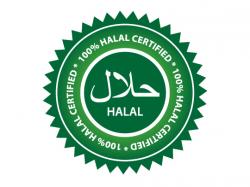New Method Addresses The Need For Increased Sensitivity In Halal Meat Authentication
July 24, 2015 | 3 min to read

FRAMINGHAM, Mass. – SCIEX, a global leader in life science analytical technologies, today announced that a new meat species authentication method designed for Halal food verification has been developed using the SCIEX QTRAP® 6500 LC-MS/MS system. Scientists at the University of Münster have successfully developed the first method that can detect multiple species simultaneously while achieving the lowest limits of detection, even in cooked and highly processed meats. The method marks a new dimension in meat speciation testing, delivering excellent sensitivity and reliability of results compared with traditional approaches to meat authentication. Novel methods such as this significantly advance the science of combatting food fraud.
For Muslim and Jewish cultures, in particular, it is critical for consumers to know that foods have been prepared in accordance with Islamic or Jewish beliefs, respectively. Traditional Halal meat speciation testing methods utilizing PCR and ELISA have concerning limitations, particularly in their lack of specificity, which can lead to false product labeling and ultimately food fraud. However, this new LC-MS/MS based method enables robust, specific, and simultaneous detection of protein peptides of multiple meat species including beef, chicken, pig, goat, lamb, deer and many more, at levels as low as 0.02%, and can be used to support Halal certification testing programs.
“The QTRAP 6500 has the best available sensitivity and specificity, which are essential for this new method to meet the needs of religious communities, where the limit of detection must be as low as possible,” said Dr. Jens Brockmeyer, Research Group Leader at the Institut für Lebenschmittelchemie, University of Münster. The sensitive and versatile new method incorporates a faster sample preparation procedure than previous mass spectrometry-based speciation methods, to simplify and accelerate meat testing.
“Food testing laboratories with QTRAP Systems can easily adopt this method, including those without proteomics backgrounds,” added Dr. Jens Brockmeyer. Food testing laboratories are increasingly turning to mass spectrometry for its greater accuracy, reliability and robustness over traditional methods for identifying and quantifying food ingredients.
“This method brings a new level of reliability to food analysis and labeling that will allow millions of people to consume Halal-certified meat with greater confidence,” said Jean-Paul Mangeolle, President of SCIEX. “It exploits the QTRAP 6500’s superb sensitivity and accuracy to offer powerful new capabilities for faster, multi-species testing in diverse sample types.”
The SCIEX QTRAP technology enables quantitative MRM3 workflows, which enhance the selectivity and data quality, and provides comprehensive peptide sequence confirmation and quantitation when analyzing complex food samples.
To learn more about the techniques to help validate lawful Halal products, download the Halal Food and Product Testing Info Kit.
About SCIEX
SCIEX helps to improve the world we live in by enabling scientists and laboratory analysts to find answers to the complex analytical challenges they face. The company's global leadership and world-class service and support in the capillary electrophoresis and liquid chromatography-mass spectrometry industry have made it a trusted partner to thousands of the scientists and lab analysts worldwide who are focused on basic research, drug discovery and development, food and environmental testing, forensics and clinical research.
With over 40 years of proven innovation, SCIEX excels by listening to and understanding the ever-evolving needs of its customers to develop reliable, sensitive and intuitive solutions that continue to redefine what is achievable in routine and complex analysis. For more information, please visit sciex.com.
SCIEX social: Twitter: @SCIEXnews, LinkedIn and Facebook.
Source: SCIEX
